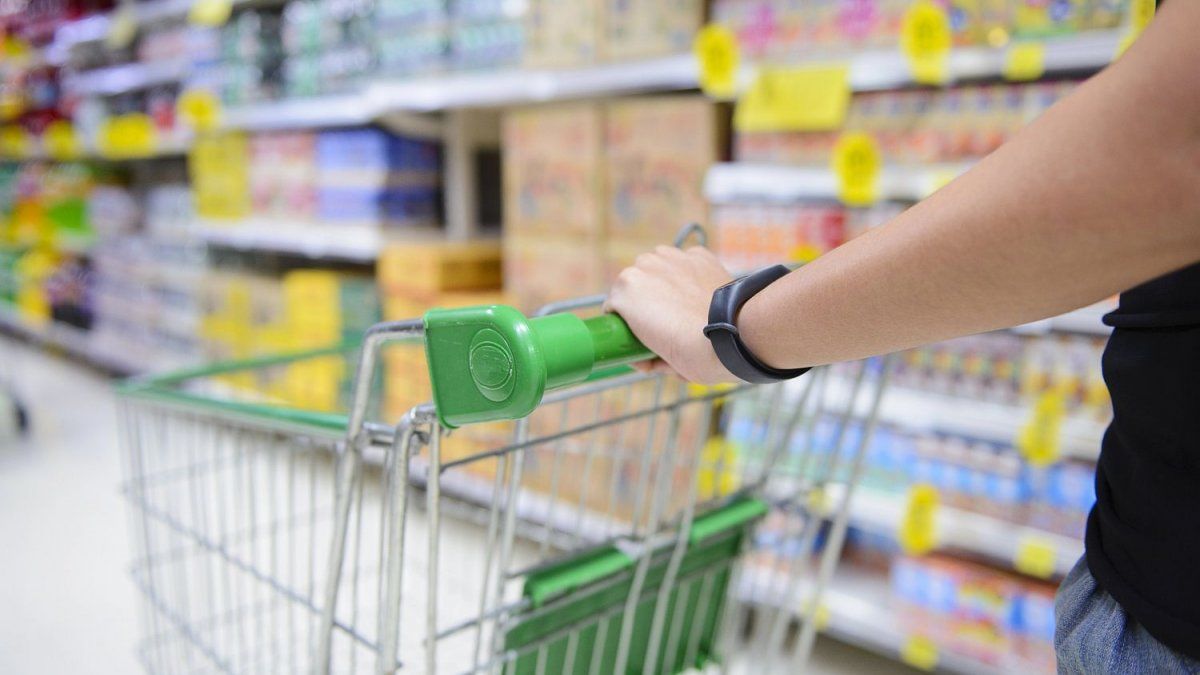Consumption shows a strong contraction. Businesses are going through delicate months, with few sales and cost increases. The uncertainty about how long will the recession last and the liquefaction of salaries It causes expenses to be taken care of to the extreme. Faced with this panorama, it is important to know what experts say about when and how it will happen. economic recovery but, mainly, what will happen to the ability to reactivate purchasing power.
Domestic consumption in Argentina represents no less than 70% of GDP. To get a sense of the retraction that occurred in the sector in recent months, just look at the latest report from Argentine Confederation of Medium Enterprises (CAME): in March, retail sales fell 12.6% annually compared to the same month last year, at constant prices, and accumulate a collapse of 22.1% in the first quarter of this year.
But consumption and purchasing power go hand in hand and that is where how It will be the recovery of salary dynamics, on the one hand, and retirements, on the other. “On the demand side, the recovery of the economy will depend largely on private consumption since this is equivalent to almost three quarters of GDP. In turn, consumption is determined, to a large extent, by the dynamics of the real salary,” he told Scope, Tobias Pejkovich Balbianieconomist at Facimex.
In this sense, between November and January the real salary (measured by the RIPTE) fell 14% in real terms, reaching its lowest level since 2005 and being the sharpest fall in the last two decades. “The economy seasonally adjusted fell 5.8% in those three months, in which It was the third biggest drop in at least the last 20 yearsonly being surpassed by the crisis at the end of 2008 and the outbreak of the pandemic in 2020,” the analyst added.
Given this, Can a date be set for the recovery of consumption? For Camilo Tiscorniadirector of C&T Economic Advisors, not yet. “Very complicated question. Difficult to set a date. I think it will happen gradually,” she told this medium and expanded: “The issue is that there are no good indicators to follow the issue with little delay. We will continue to see year-on-year decline for a long time. The key is when the recovery begins month by month“.
“It would be inaccurate to say when domestic consumption will recover.since it seems that still we have not seen the worst of the adjustment. Increase in rates for electricity, gas, water, fuel, transportation, prepaid, among others, added to the lack of approval of the joint ventures, are constantly denting consumption and there is no foreseeable period of recovery of purchasing power for that to happen,” said the economist. Federico Glustein.
Salaries and pensions: guidelines for understanding consumption
“Domestic consumption depends a lot on what happens with salaries and social spending. If we analyze what has already happened in the first months of the year, with a sharp drop in both public and private salaries and pensions, We see that it is consistent with a recession scenario for this year; beyond that exports they are going to grow and that is going to be a component of demand that will drive favorably but it will not compensate for the drop in private consumption, investment and public consumption,” said the economist and director at Analytica, Claudio Caprarulo.
In this regard, it is relevant to highlight that one of the greatest liquefactions within the Javier Milei era occurred in retirements. A study by the director of YoArgentine Institute of Fiscal Analysis (Iaraf) Nadin Argañarazestimated that with the March retirement increase (27.18% according to the automatic quarterly formula), Retirement assets will end the first quarter of the year with a loss of purchasing power of 42% compared to the same quarter of 2023.
So, what could happen in the short term with purchasing power? “If we think that in In the coming months the salary will stop falling in the way it has done until now, it is a very possible scenariobut we also have to take into account that what is going to start happening is that Companies are going to begin to adapt their workforce according to a lower level of production. That means that unemployment will increase,” Caprarulo added.
pesos bills investments salaries taxes
The sharp drop in income, both in salaries and pensions, had a full impact on consumption.
Depositphotos
Recession: which sectors have the best chance of recovering first
With the expectation of the liquidation of the thick harvest, Agriculture will be a spearhead sector for economic recovery. However, Pejkovich Balbiani warned, The numbers will be distorted by the impact of the historic drought of 2023. “We are expecting the economy to fall 1.5% this year, but with a lot of sectoral heterogeneity,” he said.
“Within the aggregate activity, we hope that The agricultural sector shows an increase of around 20% annually and the economy without agriculture declines 3.5% annually“, he expanded. For this economist, Industry, Construction and Commerce would be between the sectors more beaten, all areas that have a huge number of employees.
For Glustein, for his part, agriculture, tourism and mining are recovering little by littlehence there is a good expectation for the consumption of foods derived from agriculture. “What is certain is that Salary recovery will be key for consumption to begin to raise its headabove all, for the middle class, which is the driving force of consumption in service sectors and fundamental for some goods, such as dairy products, recreation and tourism,” he added.
Finally, for Caprarulo, The first to be recovered will be the most essential consumption and services. and then that will increase towards estate and services related with recreation and enjoyment. “Of course, all this depends on the consumption basket of each socioeconomic level,” she specified.
Source: Ambito




